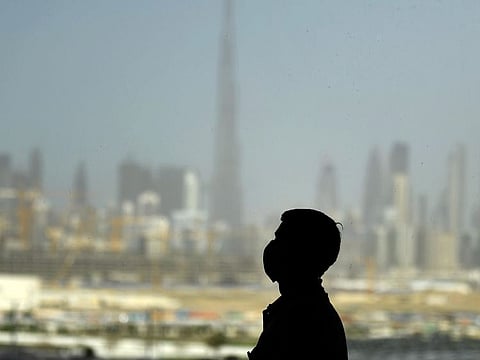Coronavirus: Moral Meaning of this plague
In situations like this, meaning is a vital medication for the soul

It can all seem so meaningless. Some random biological mutation sweeps across the globe, murdering thousands, lacerating families and pulverising dreams.
Life and death can seem completely arbitrary. Religions and philosophies can seem like cruel jokes. The only thing that matters is survival. Without the inspiration of a higher meaning, selfishness takes over.
This mindset is the temptation of the hour — but of course it’s wrong. We’ll look back on this as one of the most meaningful periods of our lives.
Suffering can be redemptive. We learn more about ourselves in these hard periods. The differences between red and blue don’t seem as acute on the gurneys of the ER, but the inequality in the world seems more obscene when the difference between rich and poor is life or death
Viktor Frankl, writing from the madness of the Holocaust, reminded us that we don’t get to choose our difficulties, but we do have the freedom to select our responses.
Asserting our own dignity
Meaning, he argued, comes from three things: the work we offer in times of crisis, the love we give and our ability to display courage in the face of suffering. The menace may be subhuman or superhuman, but we all have the option of asserting our own dignity, even to the end.
I’d add one other source of meaning. It’s the story we tell about this moment. It’s the way we tie our moment of suffering to a larger narrative of redemption. It’s the way we then go out and stubbornly live out that story. The plague today is an invisible monster, but it gives birth to a better world.
This particular plague hits us at exactly the spots where we are weakest and exposes exactly those ills we had lazily come to tolerate. We’re already a divided nation, and the plague makes us distance from one another.
We define ourselves too much by our careers, and the plague threatens to sweep them away. We’re a morally inarticulate culture, and now the fundamental moral questions apply.
Addressing our problems
In this way the plague demands that we address our problems in ways we weren’t forced to before. The plague brings forth our creativity. It’s during economic and social depressions that the great organisations of the future are spawned.
Already, there’s a new energy coming into the world. The paradigmatic image of this crisis is all those online images of people finding ways to sing and dance together across distance.
Those videos call to mind that moment of Exodus when Miriam breaks into song. “It is the dance that generates the light,” Avivah Gottlieb Zornberg writes, “the women produce an energy in the light of which all participate equally in the presence of God.”
Already there’s a shift of values coming to the world. We’re forced to be intentional about keeping up our human connections. Relationships get forged tighter by the pressure of mutual dread. Everybody hungers for tighter bonds and deeper care.
Wouldn’t it be great to possess the quality that one biographer found in novelist E.M. Forster: “To speak to him was to be seduced by an inverse charisma, a sense of being listened to with such intensity that you had to be your most honest, sharpest, and best self.”
There’s a new action coming into the world, too. I was on a Zoom call this week with 3,000 college students hosted by the Veritas Forum. One question was on all their minds: What can I do right now?
I was on another Zoom call with 30 Weavers, and each one of them had begun some new activity to serve their neighbours. One lady was passing out vegetable seeds so families could plant their own vegetable gardens. Others are turning those tiny front-yard libraries into front-yard pantries. Some people are putting the holiday lights back up on their houses just to spread some cheer.
There’s a new introspection coming into the world, as well. Everybody I talk to these days seems eager to have deeper conversations and ask more fundamental questions:
If your lungs filled with fluid a week from Tuesday would you be content with the life you’ve lived?
Do you know where your most trusted spiritual and relational resources lie?
What is the specific way you are situated to serve?
We are all assigned the task of confronting our own fear. I don’t know about you, but I’ve had a pit of fear in my stomach since this started that hasn’t gone away. But gradually you discover that you have the resources to cope as you fight the fear with conversation and direct action. A stronger self emerges out of the death throes of the anxiety.
Suffering can be redemptive. We learn more about ourselves in these hard periods. The differences between red and blue don’t seem as acute on the gurneys of the ER, but the inequality in the world seems more obscene when the difference between rich and poor is life or death.
So, yes, this is a meaningful moment. And it is this very meaning that will inspire us and hold us together as things get worse. In situations like this, meaning is a vital medication for the soul.
— David Brooks is a noted columnist. He is also a commentator on PBS NewsHour.







